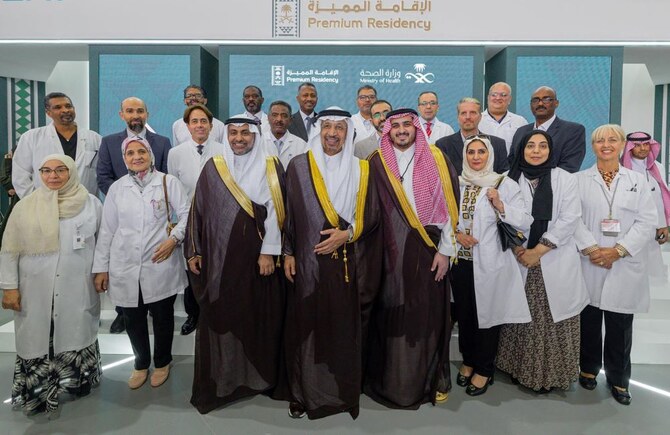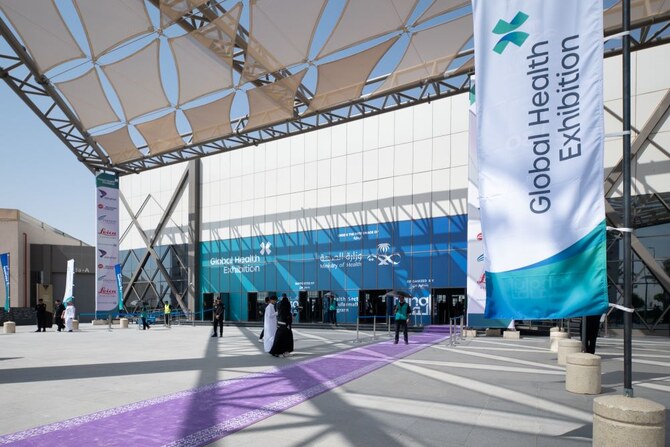RIYADH: Premium residency — which is known unofficially as the “Saudi green card” — has been granted to 2,645 healthcare workers from 56 countries, Saudi Arabia’s health minister announced.
Fahd Al-Jalajel made the announcement on the first day of the Global Health Forum in Riyadh on Monday.
He said in a statement that the move was part of wider efforts intended to retain and attract exceptional professionals, including doctors and practitioners in priority health specialties.
The statement also noted that these highly-skilled workers play a critical role in transferring knowledge and global expertise to Saudi professionals.
Ganesh Sivasankara, is a premium residence holder who works as a consultant anaesthesiologist at King Faisal Specialist Hospital and Research Center. He moved to Saudi Arabia from the UK 10 years ago.
He told Arab News: “We find that the main benefit has been definitely the travel, in and out of the country, each time, whether we go on a business visit or visit back home to family, and that’s been a very, very important benefit to us.
“We are delighted that we’re already reaping the benefits of what we’re offered in the program. And we continue to hope to benefit from those features in the future.”
Dr. Mohammed Azfar, another premium residency holder, works as a consultant medical oncologist at Prince Faisal Cancer Center in Buraidah.
“I’ve been working in three countries: Pakistan, the UK and Saudi Arabia,” he told Arab News. “If I compare the three countries, Saudi Arabia has been has been a far greater experience than the other two countries ... you have all the facilities that you have in the West and you get to enhance your education.
“It has been a great experience for me as well as for my family.”
Falling under the Special Talent Residency category, the new residency holders are entitled to a visa-free stay in the country, renewable after five years.
Among other benefits, the premium residency also allows them to sponsor parents, spouses, and children under the age of 25.
They can also own real estate in the Kingdom, move freely between jobs, conduct business, issue visit visas for relatives, and use airport immigration queues designated for Saudi and GCC (Gulf Cooperation Council) citizens.
As well as the Special Talent Residency, Saudi Arabia’s Premium Residency Center also offers the following residence types: Gifted Residency, Investor Residency, Entrepreneur Residency, Real Estate Owner Residency, Limited Duration Residency, and Unlimited Duration Residency.
The residency scheme was officially introduced in 2019, three years after it was announced by Crown Prince Mohammed bin Salman as forming part of Vision 2030.
Awarding healthcare workers with premium residency reflected national efforts to improve health, enhancing overall quality of life, the statement added.
One of Vision 2030’s national initiatives is the Health Sector Transformation Program. In a cabinet session in July, the crown prince praised the progress made under the program, following the publication of its 2023 achievements report.





























